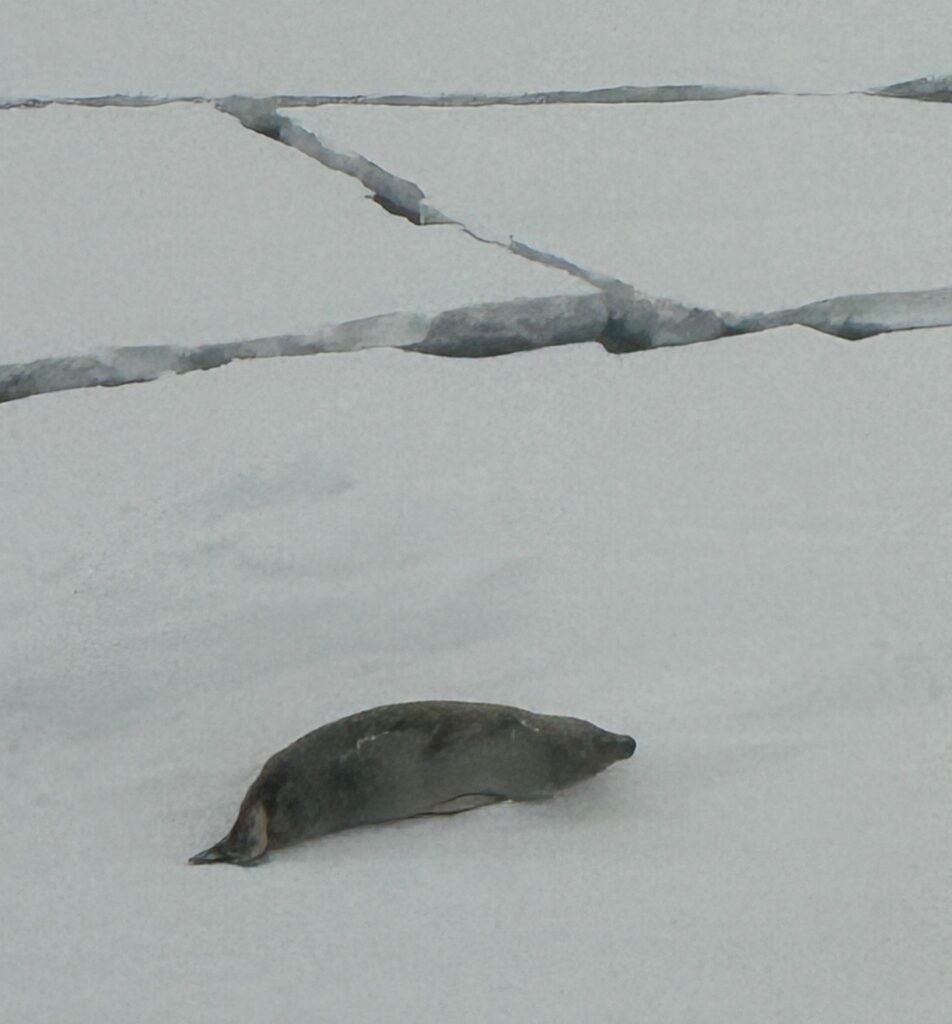
7 November, 2025 During our morning routine of waking and opening the curtains to peak out the balcony window, we were surprised to find the thick sheet of ice that had surrounded us, and we had walked on the night before, was broken up. The ice sheets, now split by large cracks with deep blue water peeking through, were speckled with several groups of emperor penguins and a handful of crabeater seals. We counted over 50 penguins and four crabeater seals within the first hour of waking.
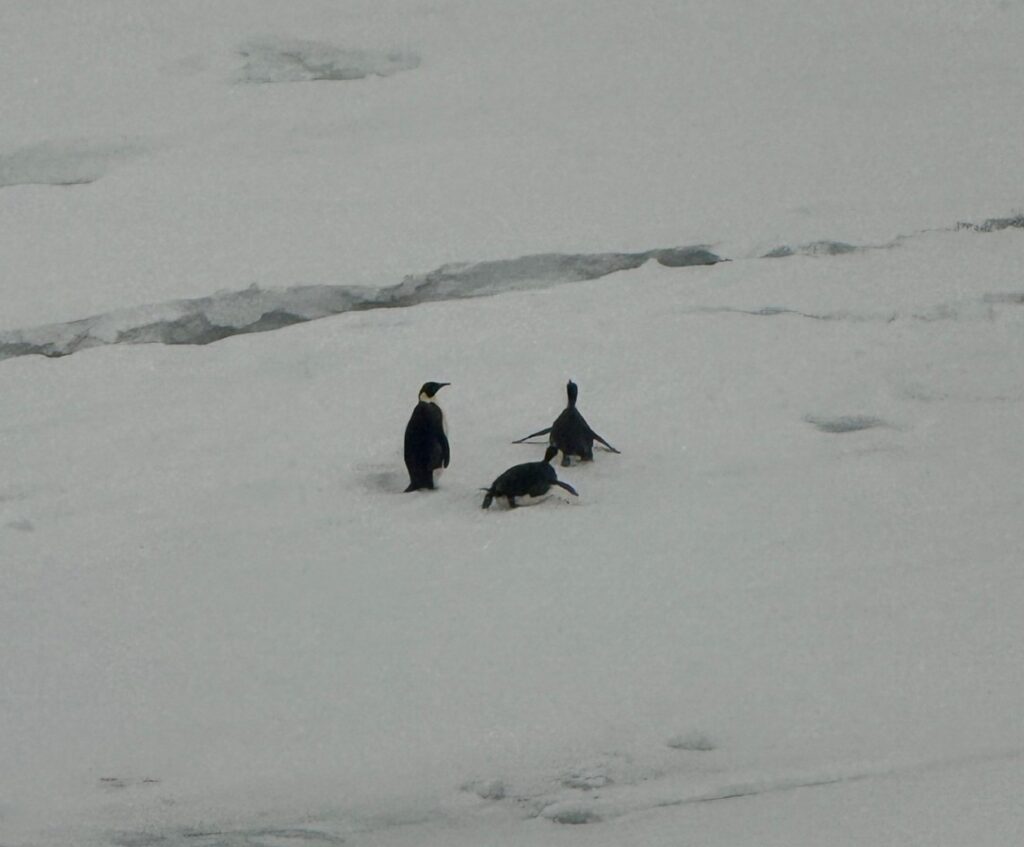
Photo: MariAnna Hinojosa, iPhone 15 Pro Max.
The Charcot began heading southwest to round the southern edge of Snow Hill Island and were making progress through very thick ice packs. We spent the morning conducting transect surveys from the bridge. A few penguins, emperor and Adélie, and crabeater seals were spotted, both on ice and in the water. We were nearing the southernmost part of Snow Hill Island when we were halted around 11:45am by a large, impassable sheet of ice. The bridge was then closed for focus during challenging navigation and therefore our morning survey concluded. The captain then decided to head back north and transit to the west side of James Ross Island into the Prince Gustav Channel, known for its deep basins and glacial history, in the northeastern Antarctic Peninsula.
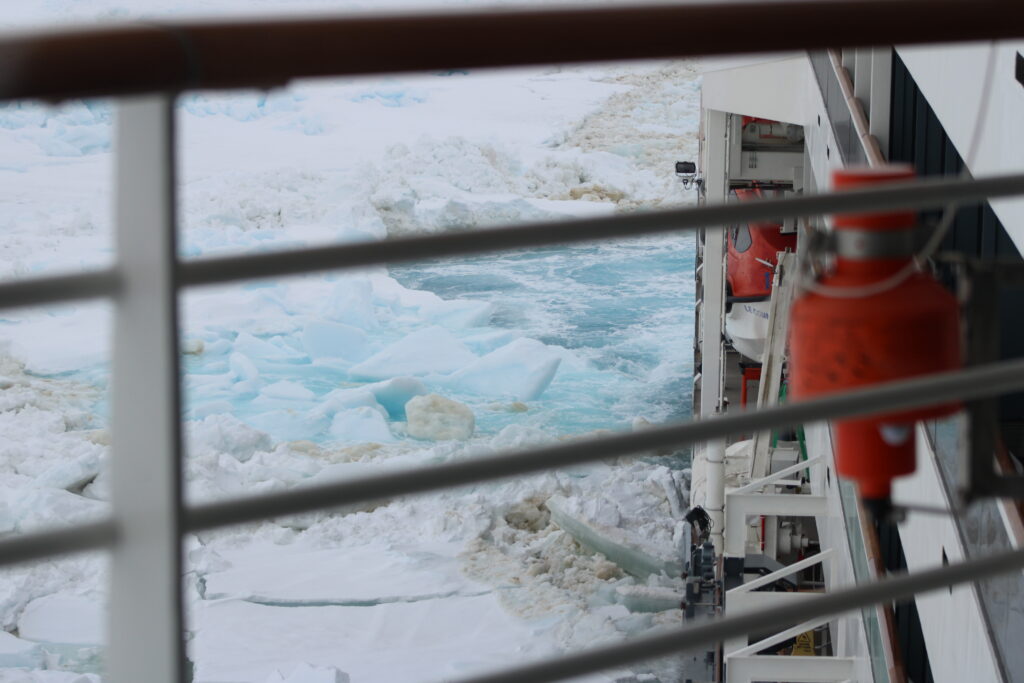
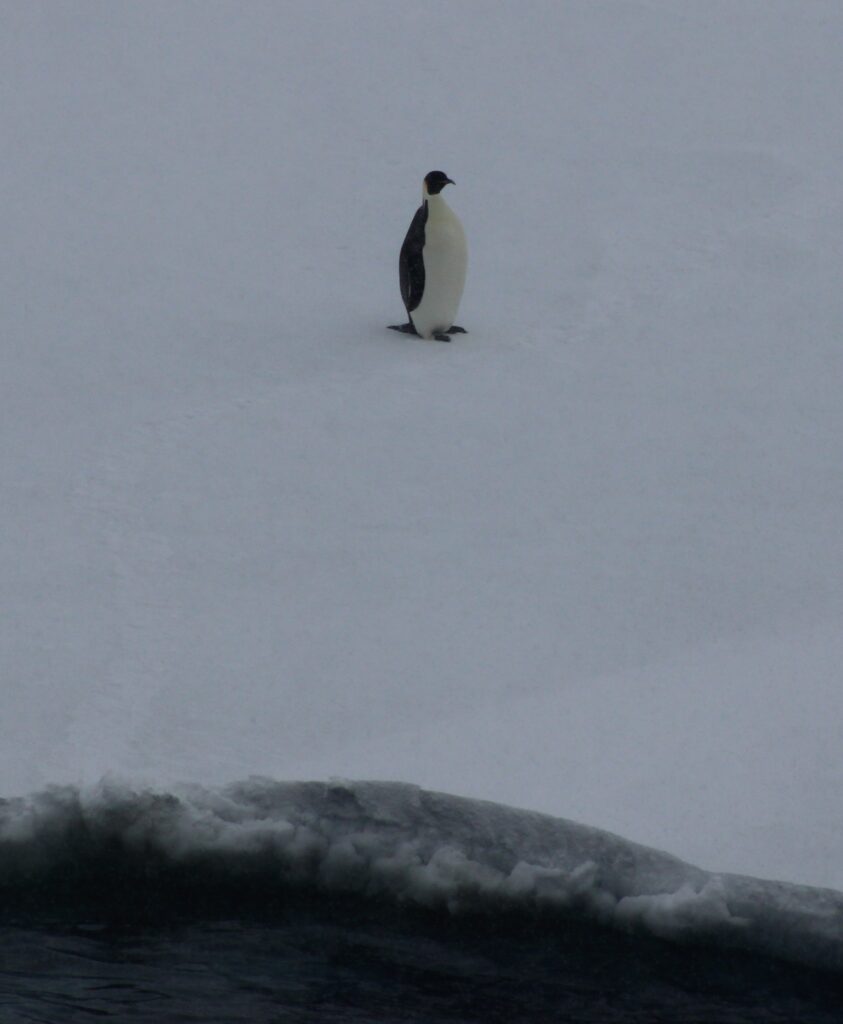
We stopped briefly along the east side of Snow Hill Island against a large ice floe that the captain estimated to be about 50 years old. He was excited to share that it was a rare finding! Our glaciologist friend, Caroline, measured it to be 4m tall above the surface of the water meaning it was predicted to be 40-50m in total! There was a small clearing of open water around us between several large icebergs and ice floes, so the plan was to get passengers out on zodiacs while we conducted surveys from the 5th deck aft bridge. Unfortunately, the weather took a sudden turn for the worse and it started snowing shortly after all zodiacs were lowered to the water and guides had already taken them out (naturally!). The zodiacs were recalled, and the outing was cancelled. We were able to complete our survey and spotted two emperor penguins swimming in the water, several snow petrels, and surprisingly a snowy sheathbill. Shortly after, we were back in route heading north. We travelled very slowly through thick sea ice and saw few birds and mammals before concluding our surveys for the day.
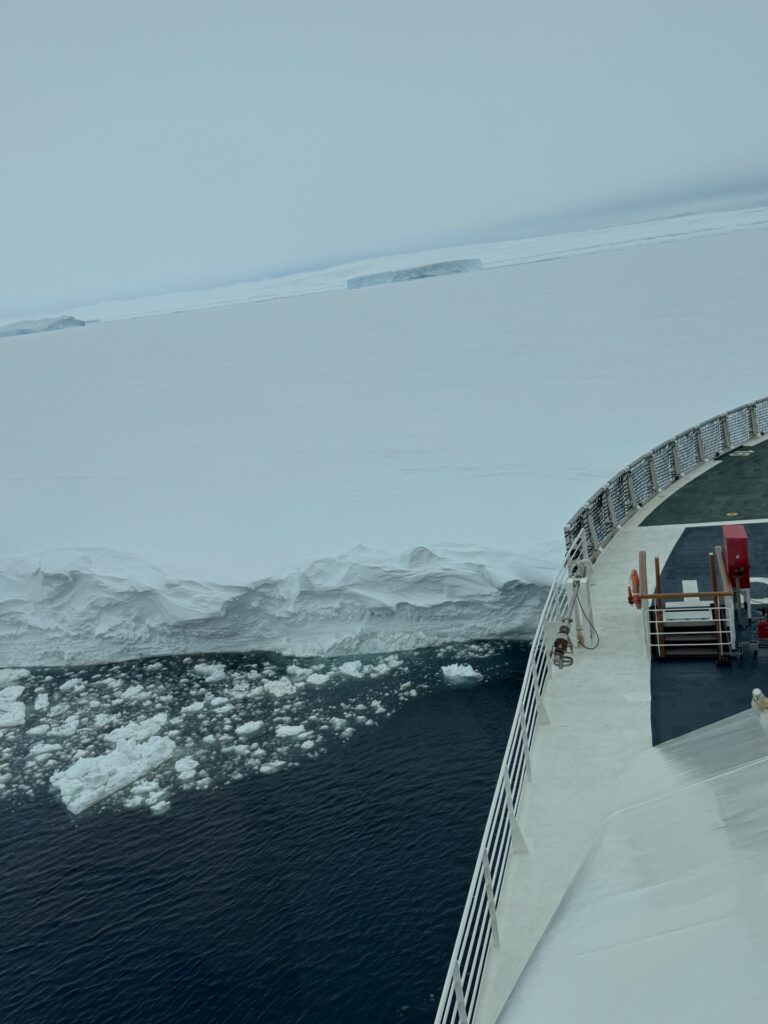
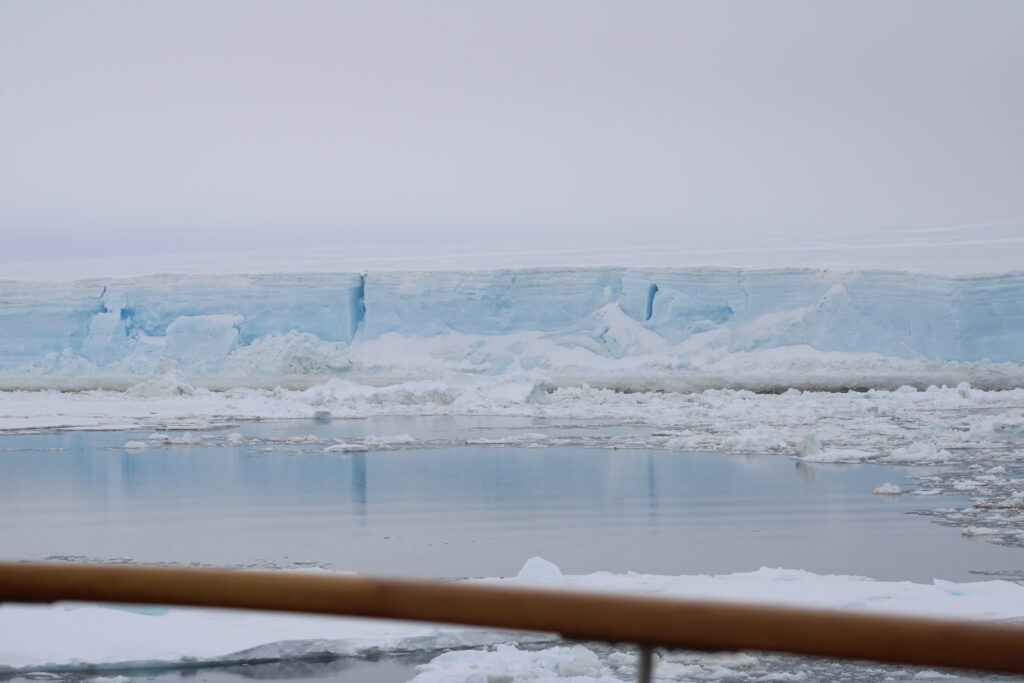
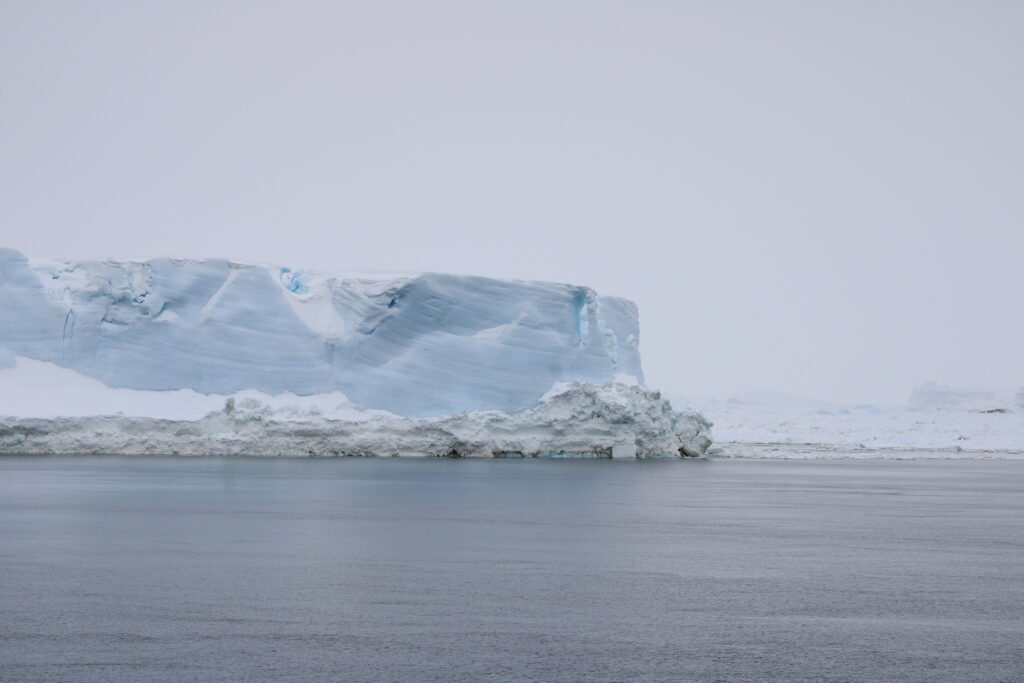
Renee spent the evening dining with the same three guests MariAnna had dined with last Sunday. They discussed many topics including the carbon cycle, carbon sequestration, the impacts of whaling, and the delicate balance of coastal ecosystems and the role of keystone species. It was a delightful evening with delicious food and engaging discussion. That evening we were gently rocked to sleep as we continued north through the thick pack ice. We looked forward to, and hoped for, good conditions the next day to get out on the ice or on a zodiac again for more surveys and hydrophone dips.
